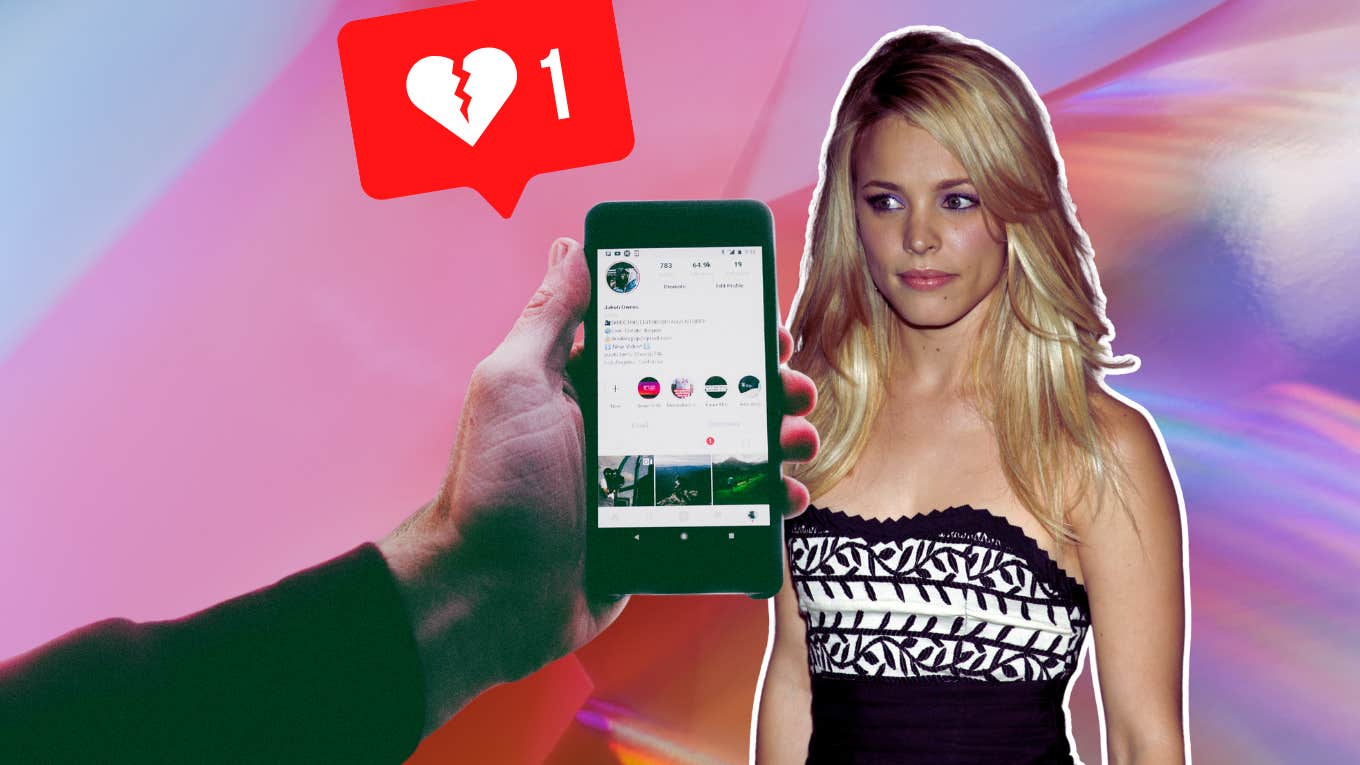Why Instagram Is The 'Regina George' Of Social Media
"They watch you but they don't support you."
 Jakob Owens via Unsplash / Olga Niekrasova via Canva / Tinseltown via Shutterstock
Jakob Owens via Unsplash / Olga Niekrasova via Canva / Tinseltown via Shutterstock Everyone has their preferences when it comes to social media platforms. Baby Boomers and Gen X tend to gravitate to YouTube and Facebook while Instagram and TikTok are the top platforms for Millennials and Gen Z. But one woman whose demographic typically favors Instagram has several issues with the platform, citing the behavior of those who frequent it.
A woman named Taylor Stewart shared a video titled “Make Instagram fun again,” where she shared the reasons why she is uncomfortable with posting content on Instagram and the reasons she never wants to share “exciting or creative things she is working on.
She called Instagram the 'Regina George' of social media.
Explaining that Instagram is full of people who watch what you’re doing, but never like or engage with your content, Stewart refers to these people as “ghost watchers” — ‘lookey loos’ who have definitely taken notice of what you post but refuse to give you the satisfaction of even knowing they care.
She says that the idea of them never interacting or acknowledging you is just “icky.”
Clearly, the disillusioned influencer sees that her content is being watched, but because of the lack of action by viewers, she’s unsure if they are watching because they like her or because they can’t stand her. “It just feels judgy,” she explained.
Stewart went on to say Instagram is “filtered” and “corporate,” a place where people want to be a fly on the wall to know your business without you noticing them noticing you.
Stewart says the mean girls from high school come to Instagram to make her stay an old version of herself.
The other problem the young woman has with the platform is that people who were not so nice during her school days show up on her profile to confirm that she is the same introverted outcast she was in high school. “Whether it be the meathead jocks or the popular girls, they just kind of hold on to an older version of you, especially if you were an outcast,” she claimed.
Stewart admits that she was part of the unpopular crowd growing up and resents the people who were not trying to box her into who she used to be. She believes that those people are only there to make fun of her for things she used to do like eating alone at lunch. To her, Instagram is akin to the high school cafeteria where she had negative experiences.
“No one is supporting you. They’re just talking about you and wanting to tear you down,” she said as the video ended.
Social media is what you make it. Assumptions are your worst enemy.
Though there may be some truth to what Stewart believes about Instagram, it’s important to note that everyone’s individual perspective about any social media platform is a result of their preconceptions and lived experiences as well as how they intend to use it.
If you are coming from a place where you were on the outside looking in, you are likely to carry some confidence issues over to the virtual world. She might even be suffering from the ‘College Reunion Effect,’ subconsciously begging those who once shunned her to like the new person she’s become.
Also, a lot of emotions surrounding social media are based on assumptions. Unless someone blatantly tells you what they think of you, it’s hard to say what is going on in their mind. Some of the thoughts around what people think of Stewart might be due to her own insecurities and not entirely based on facts.
It’s important to remember that people change. Just because someone might have been a typical ‘mean girl’ like Regina George in school; manipulating, controlling and bullying others, doesn't mean they can’t grow and evolve.
When it comes to sharing your life on social media, remember that you are what you post about. Don’t bother concerning yourself with the people that don’t engage with your content. The ones who love and support you will find you. Those are the people you should pay attention to.
NyRee Ausler is a writer from Seattle, Washington. She covers lifestyle, relationship, and human-interest stories that readers can relate to and that bring social issues to the forefront for discussion.

